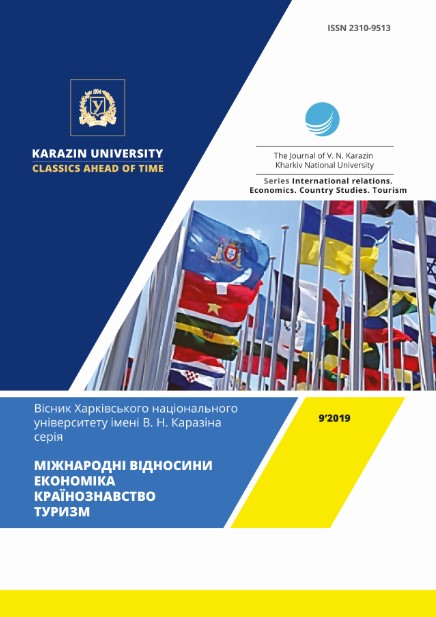Research of existing tax systems in advanced economic countries
Abstract
One of the key factors on which the effective functioning of the entire national economy depends is the organization of the state taxation system. Prospects for the reform of personal income tax are currently widely discussed with the aim of maximizing its fiscal functions and achieving equity taxation. Let us consider in more detail how foreign countries solve the problem of the fairness of taxation of personal income in the development of tax policy. The subject of the study is the foreign experience of taxation of personal income in countries with developed economies. The purpose of the study is to study the approaches to taxation of foreign countries in the current socio-economic conditions. Objective: to study the trends in the formation of the tax rate on personal income in countries with developed economies. General scientific methods are used: system analysis - to determine the specifics of tax development in economically developed countries; comparative analysis - to compare the principles in the formation of taxes in foreign countries and Ukraine. The following results were obtained: The prospects for the application of foreign experience in the taxation of personal income in Ukraine were considered. The analysis of income tax in Germany, France, Italy, Canada, the United States of America - the countries with the highest standards of living, according to the United Nations. The main features of income tax in these countries are identified, the possibility of borrowing them in the course of reforming the personal income tax in relation to Ukraine is assessed. Based on an analysis of the main approaches to taxation of personal income in countries with developed economies and Ukraine, a SWOT analysis was obtained. Conclusions: the tax systems of many states have their own historical prerequisites, are “adjusted” to the territorial and transgeographic features of countries, as well as their internal policies and the mentality of the population. Improving the efficiency of the tax system is really subject to the adjustment of the principles of taxation under the economic conditions of a particular state.
Downloads
References
Prokopchuk, E.T. (2015). Klassifikatsionnyie harakteristiki sovremennyih nalogovyih sistem. Ekonomika: vchera, segodnya, zavtra, 5, 77-91.
Bryizgalin, A.V. (2012). Nalogi i nalogovoe pravo. M.: «Analitika-Press».
Guide Me Hong Kong. Retrieved from https://www.guidemehongkong.com/businessguides/supporting-a-business/hong-kong-tax-rates-and-income-tax-system/
Bloomberg. Retrieved from https://www.bloomberg.com/news/articles/2018-07-16/happy-prime-day-jeff-amazonceo-s-net-worth-tops-150-billion/
Emelyanov, A.M., Matskulyak, I.D., & Penkov, B.E. (Red.). (2001). Finansyi, nalogi i kredit. M.: RAGS.
Poponova, N.A. (2000). Nalogovyiy kontrol vo Frantsii. Finansyi, 10, 32-34.
Gardash, S.V. (2000). Federalnaya nalogovaya sistema SShA: sovremennyie osobennosti. SShA - Kanada: ekonomika, politika, kultura, 8, 18-36.
Nesterov, V.V. (Red.). (2006). Nalogi i nalogooblozhenie: uchebno-metodicheskoe posobie. M.: Finansyi i statistika.
Babenko, V.A., Sidorov, V.I., &Savin, R.S. (2018). Activities of international agroholdings in the world market of foreign investment: investigation of trends and factors of impact in current financing conditions. Technology audit and production reserves, 4/4(42), 18-24. Retrieved from DOI: 10.15587/2312-8372.2018.141135.
Chernik, D.G. (2001). Nalogi i nalogooblozhenie. M.: «INFRA – M».
Knyazev, V.G. (1997). Nalogovyie sistemyi zarubezhnyih stran. M.: «Zakon i pravo».
Kiseleva, E.A. (2005). Makroekonomika. M.: «INFRA – M».
Authors who publish with this journal agree to the following terms:
- Authors retain copyright and grant the journal right of first publication of this work under the terms of a license Creative Commons Attribution License 4.0 International (CC BY 4.0).
- Authors are able to enter into separate, additional contractual arrangements for the non-exclusive distribution of the journal's published version of the work (e.g., post it to an institutional repository or publish it in a book), with an acknowledgement of its initial publication in this journal.
- Authors are permitted and encouraged to post their work online (e.g., in institutional repositories or on their website) prior to and during the submission process, as it can lead to productive exchanges, as well as earlier and greater citation of published work.




